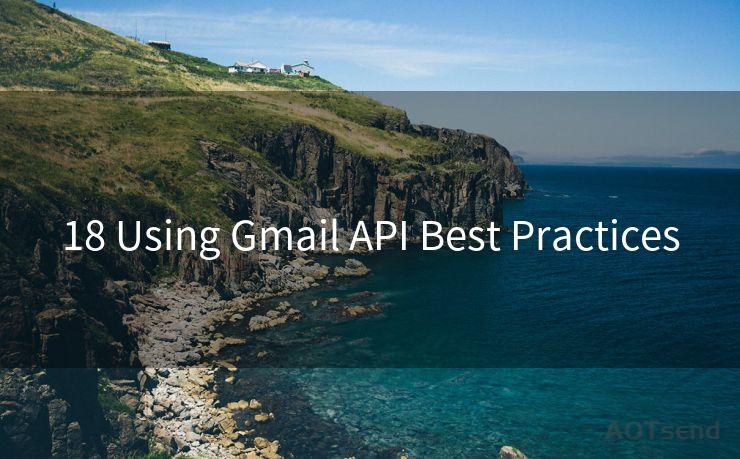18 Using Gmail API Best Practices




1. Understanding the Gmail API
The Gmail API provides a powerful and flexible way to access Gmail mailboxes and perform various operations such as reading, sending, and modifying emails. To make the most of this tool, it's essential to understand its capabilities and limitations. Start by reading the official documentation thoroughly to grasp the API's structure, authentication methods, and supported operations.
2. Setting Up Authentication Properly
Before you can start using the Gmail API, you need to set up authentication. This typically involves creating a project in the Google Cloud Platform, enabling the Gmail API, and creating credentials. Make sure to follow the best practices for securely storing and using these credentials.
3. Managing Quotas and Limits
The Gmail API has usage limits to prevent abuse and ensure stability. It's crucial to monitor your API usage and stay within the prescribed quotas. Exceeding these limits can result in temporary bans or other restrictions. Use the provided metrics in the Google Cloud Console to track your usage.
4. Optimizing API Requests
To minimize latency and maximize efficiency, optimize your API requests. Use batch requests to bundle multiple operations into a single HTTP request, reducing the number of round trips to the server. Additionally, leverage partial response fields to fetch only the data you need, reducing bandwidth usage.
5. Handling Errors Gracefully
When working with any API, error handling is crucial. The Gmail API can return various error codes and messages, indicating issues such as authentication failures, quota exceeded, or invalid requests. Implement robust error handling mechanisms to catch and appropriately respond to these errors.
6. Securing Data Transmission
Ensure that all data transmitted between your application and the Gmail API is secure. Use HTTPS for all API calls to encrypt the data in transit. This helps protect sensitive information from being intercepted by unauthorized third parties.
7. Following Gmail's Terms of Service
When using the Gmail API, adhere strictly to Gmail's Terms of Service. Violating these terms can lead to the suspension or termination of your API access. Familiarize yourself with these terms and ensure your application complies with them.
8. Keeping Up with Changes
The Gmail API is constantly evolving, with new features being added and existing ones being updated. Stay informed about these changes by subscribing to the Gmail API release notes and announcements. This helps you stay ahead of the curve and adapt your application accordingly.
9. Testing and Monitoring
Regularly test your application's integration with the Gmail API to ensure it's functioning as expected. Set up monitoring to track performance metrics, such as response times and error rates. This proactive approach helps identify and address issues before they escalate.

🔔🔔🔔
【AOTsend Email API】:AOTsend is a Managed Email Service for sending transactional emails. Support Email Types: reminders, authentication, confirmations, notifications, verification codes, invoices, password resets, account activations, billing statements, two-factor authentication (2FA), and one-time passwords (OTP) emails, etc. $0.28 per 1000 Emails. 99% Delivery, 98% Inbox Rate.
You might be interested in:
Why did we start the AOTsend project, Brand Story?
What is a Managed Email API, How it Works?
Best 25+ Email Marketing Platforms (Authority,Keywords&Traffic Comparison)
Best 24+ Email Marketing Service (Price, Pros&Cons Comparison)
Email APIs vs SMTP: How they Works, Any Difference?
10. Providing Feedback
If you encounter any issues or have suggestions for improving the Gmail API, don't hesitate to provide feedback. Google welcomes input from developers and often incorporates community feedback into future updates.
By following these best practices, you can ensure a smooth and efficient integration with the Gmail API, unlocking its full potential for your application or service.




Scan the QR code to access on your mobile device.
Copyright notice: This article is published by AotSend. Reproduction requires attribution.
Article Link:https://www.mailwot.com/p7221.html



